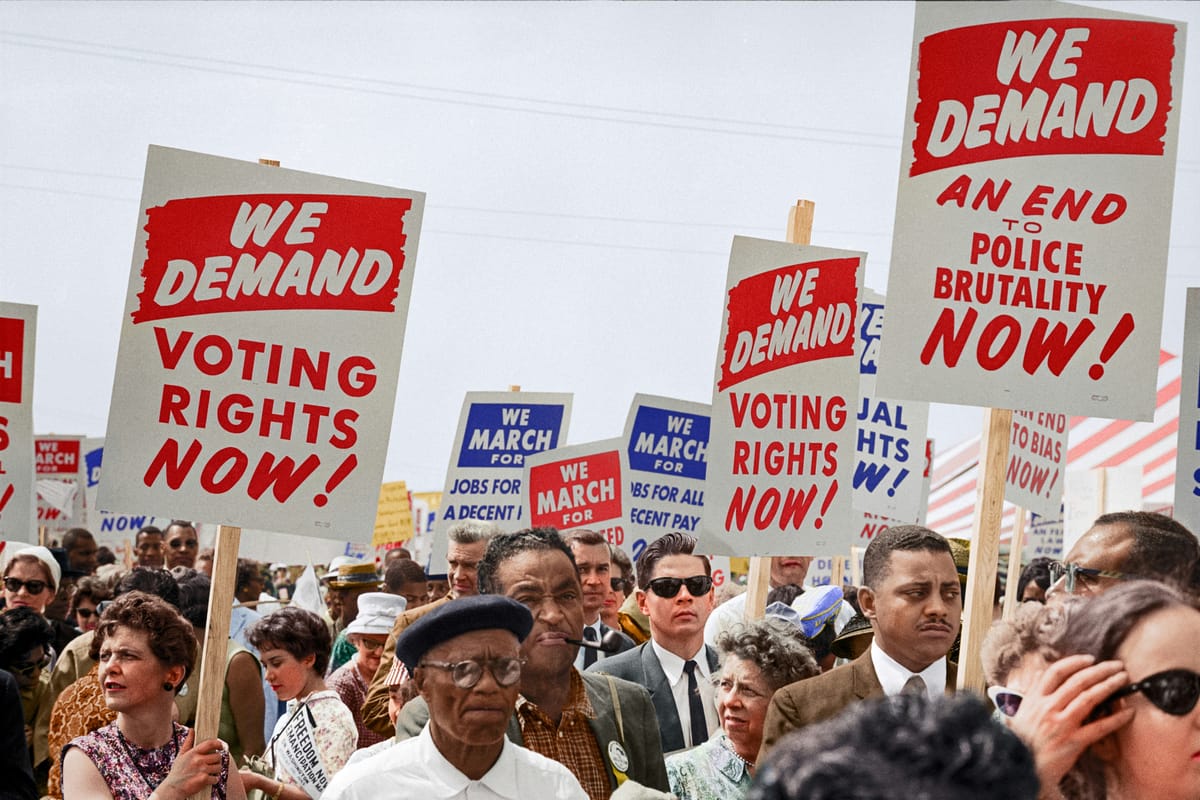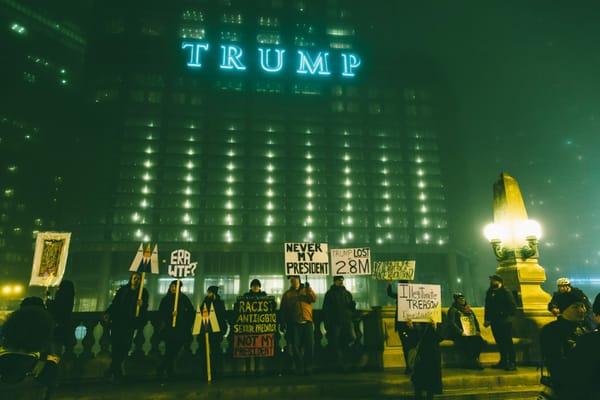The Voting Rights Act changed the South. Here's how to save it.
The Voting Rights Act, perhaps the most important piece of legislation in the 20th century South, is a shadow of its former self. Restoring it is an existential matter.

The Living South was created by journalist Billy Ball in 2025. Every Tuesday, Billy writes about the most interesting stories, people, and thoughts in the American South. Want to republish something in The Living South? Write me.
In March 1965, eight days after police beat votings rights activists senseless on Alabama's Edmund Pettus Bridge, a reluctant President Lyndon B. Johnson told Congress that there was a new legislative priority: Protecting voting rights.
“There is no Negro problem," Johnson told Congress. "There is no Southern problem. There is no Northern problem. There is only an American problem. And we are met here tonight as Americans — not as Democrats or Republicans — we are met here as Americans to solve that problem."
To have such moral clarity today.
Activists, including Martin Luther King Jr., centered their efforts on Selma, Alabama for obvious reasons.
About half of the county was Black, but only about 5% were registered. The Student Nonviolence Coordinating Committee (SNCC), one activist group working in Alabama at the time, mockingly described the Alabama city as so full of contented Black people "you can't throw a stone in any direction – or swing a billy club — without hitting at least one."
Within weeks of the violence in Selma, Congress completed and signed the Voting Rights Act of 1965, creating a national benchmark for voting protections.
It had actual teeth too, barring "literacy tests" and other racist Jim Crow laws. It required that states with a history of discrimination get approval from the feds before changing voting laws. And it protected against redistricting meant to minimize the power of Black voters.
The Voting Rights Act is one of the most significant bills ever written about or for the South. But in 2025, if it's not dead, it's in hospice. There is a way to fix it. Keep reading.





